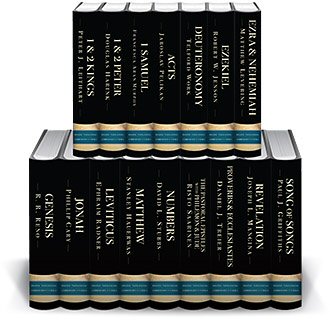Since the dawn of the Enlightenment, biblical scholarship has grown increasingly skeptical and specialized. Scholars isolate individual books of the Bible from the rest of the canon, becoming experts in Matthew, Isaiah, or Genesis, rather than Scripture as a whole.
But is this how Jesus and the apostles read the Scriptures?
Taking a cue from the New Testament and such prominent theologians as Augustine, Calvin, and Luther, the Brazos Theological Commentary on the Bible (16 vols.) starts with the premise that the Bible is Christian Scripture. Affirming its divine inspiration and human authorship, each book is interpreted theologically by identifying its place within the canon and how it illuminates the gospel of Jesus Christ. While attention is given to historical and literary context, the primary focus is on each book’s major themes and theological contributions. Like the writers of the New Testament before them, the Brazos commentators are not satisfied with only understanding a book in its own right but also relating it to the redemptive work of the Messiah.
Brazos also frequently interacts with influential interpreters from throughout church history. For example, Robert W. Jenson’s commentary on Ezekiel includes contributions from Origen and Pope Gregory the Great. Likewise, Stanley Hauerwas’ commentary on Matthew draws from Augustine, Barth, and Bonhoeffer. This approach recognizes the Spirit’s work in illuminating the Word to the church throughout the ages, giving proper respect to the voices of those who have come before.
This commentary series is especially helpful for pastors, as it provides the canonical context for each book of the Bible and draws connections between the Old Testament and the New. This frees up pastors to spend more time exegeting individual texts and less time analyzing entire books.
The Brazos Theological Commentary (16 vols.) is an important step forward in scholarship, taking the best in modern hermeneutics and combining it with the theological methodology of the New Testament and early church fathers. Pick it up today and learn how a theological approach brings rich, new insight into studying the Bible.





